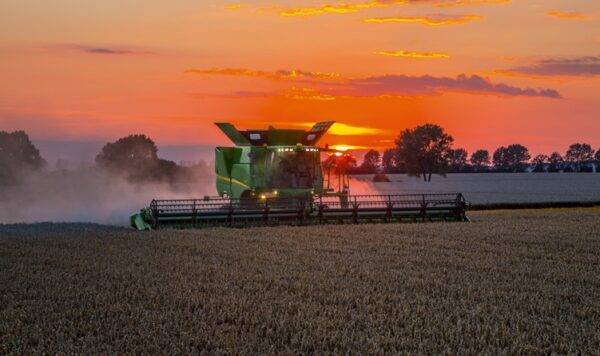The pandemic has made its adjustments in the work of all spheres of life, including the agricultural sector.
“For two years we have been implementing digital systems in our work, and in the area of planning, and in the area of production, and control of the activities. On the basis of the department of organizational development we write programs. They are the formation of the structure of sowing areas, coordination, approval, control over the execution of the correctness of the work. In the same system we make and approve work plans. All this can be done remotely, not necessarily to gather people and hold meetings. And what is important – it is very relevant in today’s realities. We develop so-called remote mobility in our employees”.
“We have a good program called ‘Agronomist Protocol’; now all the agronomist’s work is displayed there. No journals, no field history books, just one document – the agronomist’s report. Timeliness and quality of agronomic practices are also monitored there. Right on the phone, based on our plans, we get notification of when the agronomist should be in the field, look at it and upon completion of works go to the field and take the quality of the field work. There is also a program to track the sanitary condition of the fields, pests, diseases, weeds. And through this system last year we started to connect “Mobile warehouse”. We have a mobile warehouse of John Deere spare parts for engineers to control the consumption and balances of inventory. Through the system, they have remotely controlled release of drugs from warehouses, coordinated by fields, by nomenclature. Then we also use these mobile programs to track expenditures and write off funds. Virtually all of our work is now online.
In addition, the general information system this year also included control and revision services. That is, today all employees of the holding work in one program, each in his area.
This year, the agribusiness has emphasized not only online work, but also an increase in the area under winter crops. In 2019, 2,000 hectares of winter crops were planted experimentally. This year, the area has increased significantly. Many thanks to the purchase of new powerful tractors to cultivate the land. We got good conditions, and we bought some John Deere tractors. Initially we tested European seed varieties. In 2020 we showed good results, the average yield was 30 quintals per hectare. This is taking into account the fact that spring crops were at 14 centners per hectare. So for winter crops the result was very good.


